2018 USA Water Polo Junior Olympics Day Seven: You Gotta Have Heart
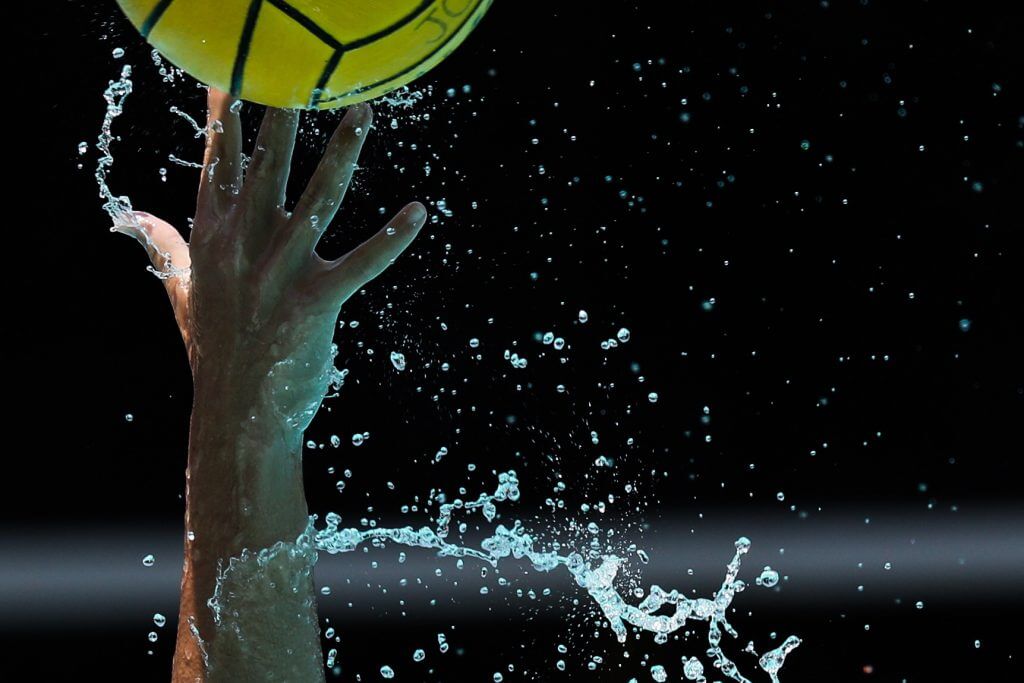
By Michael Randazzo, Swimming World Contributor
WALNUT CREEK, CA. Swimming World moved its coverage of the 2018 USA Water Polo National Junior Olympics to Walnut Creek, an upscale community east of San Francisco. The day saw a winnowing out of squads vying for medals in the girls’ 14U Classic bracket, with Alliance, Arroyo Grande, CMAC, Riverside, Shore Aquatics and Trojan among others advancing to today’s semifinals.

At the Las Lomas High School, Swimming World spoke with Ohana Water Polo Academy 14U coach Eduardo Osorio and Bridget Alvarez, the Laguna Beach 14 U coach. Previously, A.J. Abril, assistant coach for the Modesto Stanislaus Mustangs, spoke about creating a life in water polo despite being born with only one arm.
First up, Coach Osorio with Ohana, which means “family” in Hawaiian. As you’ll see, this club is not from Hawaii (and the tip off for your correspondent should have been the big RV parked in the parking lot with a sign-board that said: Ohana Water Polo Academy). And, Osorio is from Venezuela—making for an international flavor to the story.
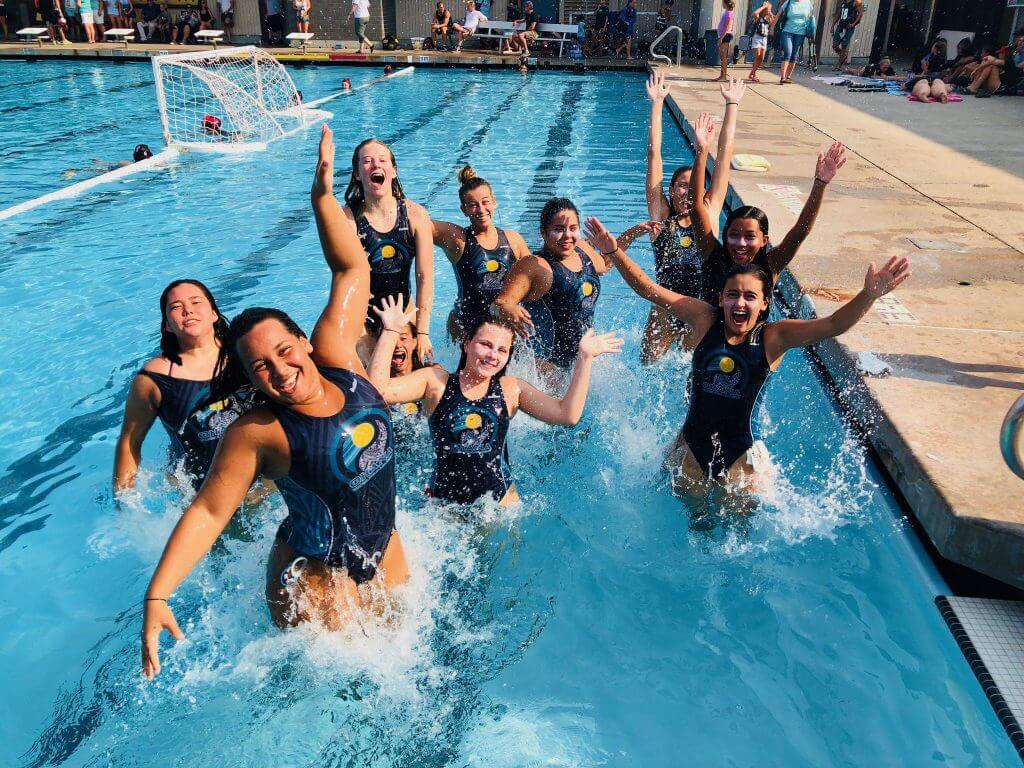
Ohana 14U girls. Photo Courtesy: Jennifer Easter
– How long have you been coaching the Ohana 14U girls’ team?
Since January this year.
– Are you from Hawaii?
– No, we’re not from Hawaii! We’re from the Los Alamitos area in Long Beach. We practice at a military base in Los Alamitos. Everybody is thinking that we’re from Hawaii. We are from the island of Los Angeles [Laughs].
– How has the tournament been for your girls?
Pretty good. We’ve been practicing together for six months or less. We entered the tournament in the classic division and we’re hoping to place ninth.
For a lot of our girls this is the first time at JOs; some of the girls have played in [the tournament] before. It’s been a very good experience for them and we plan to come back next year.
It’s nice because you go to different pools in different parts of the San Francisco area.
– For you, how many times have you coached in JOs?
This is my sixth Junior Olympics. Coaching the 14U girls one will be one of my most rewarding experiences. They’d never qualified before this year so it’s very exciting.
One of the Ohana players is not from Los Alamitos, or even Hawaii; Amanda Easter is from Austin, Texas; even though there’s a nascent polo scene in the Lone Star State, there simply wasn’t a team available for Amanda to play with in JOs.
Enter John Ivins, head coach of the Zilla Water Polo Club, who is no stranger to West Coast polo. A graduate of UC Irvine, Ivins played for legendary Head Coach Ted Newland when the Anteaters were regular participants in the national championship game, Ivins had a connection to Ohana and arranged for Amanda to join their 14U JO effort.
According to Jennifer Easter, Amanda’s mother, when it comes to water polo, “ohana” means “family” in a whole different way.
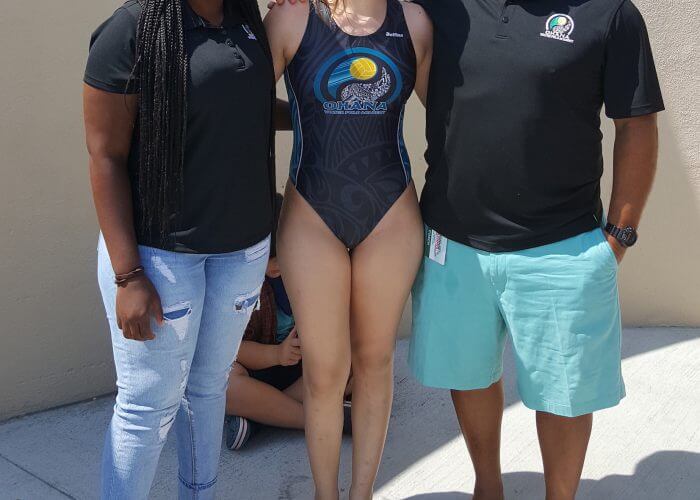
Kennedy Joseph, Amanda Easter, Eduardo Osorio. Photo Courtesy: Jennifer Easter
– How did your daughter end up with Ohana?
My daughter plays for Zilla, which is on the Northwest side of Austin.
She’s been meeting these girls at different events over the year and when she didn’t have a club available in Austin they invited her to play out here.
– How has your experience been with Ohana?
It’s been fantastic! Taking the name in terms of its full meaning in terms of welcoming and aloha.
Earlier Saturday, your correspondent spoke with Bridget Alvarez, whose Laguna Beach B team enjoyed a lopsided 19-2 win over the Brooklyn Hustle. Alvarez was understandably excited about her team’s prospects for a medal in the Classic Division; unfortunately those hopes were dashed by an 8-5 loss to Alliance later in the day—but it created an instant classic with rival SoCal on Sunday morning for fifth place.
– How long have you been with Laguna Beach?
This is my first year coaching, but I played with them for three years when I was in age group.
– With wins in the 10U, 12U and 14U Girls Platinum finals in 2017, clearly your club has enjoyed great past success at Junior Olympics.
We are very strong on the girls’ side. The difference for us is we’re the “B” team in the Classic Division; we may be a “B” team but we fight like and “A” team.
– Apparently, one of your club’s greatest strength is swimming.
We focus a lot on swimming. Every day, the first 45 minutes in of practice is swimming. Swimming’s a really big part of water polo; the faster you are, the better player you are.
– As a club from Southern California, I imagine you butt heads with SoCal all the time.
SoCal is definitely our biggest competitor. We are so even with the level of competition between the two teams. The hardest part is the physicality of the game. When the game gets physical, we sometimes break down. We can be physical with other teams but that’s not our main focus.
I feel that SoCal is more of a physical team. We lost to them once [in the Classic bracket] but we’re hoping to meet them again in the finals, if we make it back there.
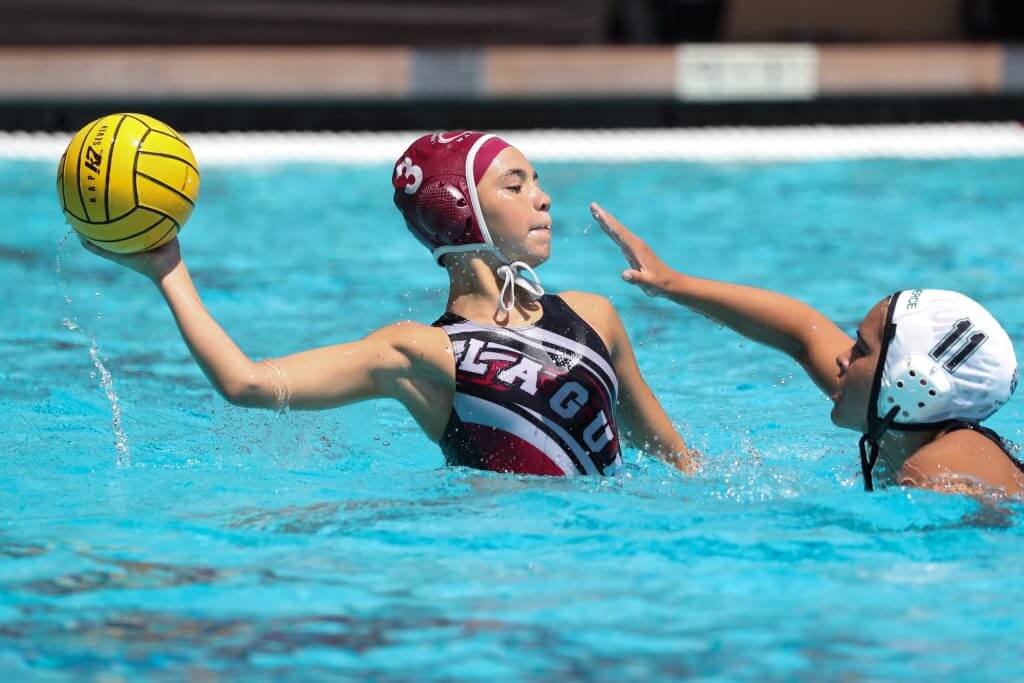
Photo Courtesy: Catharyn Hayne
– JOs is a national tournament. How does playing teams from other parts of the country beneficial to growing polo?
It’s so exciting to see that the sport’s growing across the U.S. When I started it was just mainly California and a couple of teams in Virginia and Florida. But to see poo expanding so far is so exciting.
There’s more competition, and the sport can keep growing and growing.
Friday at the Cabrillo College pool, Swimming World spoke with A.J. Abril of the Modesto Mustangs about his experience both playing and coaching water polo.
– What’s your role with the Mustangs?
I’m one of the club coaches for 14U. I’ve been involved with water polo for 26 years. I played splashball, high school ball, in college and then rolled right into coaching. I’ve got 16 years coaching under my belt.
I also coach at Buhach Colony High School in Atwater, California.
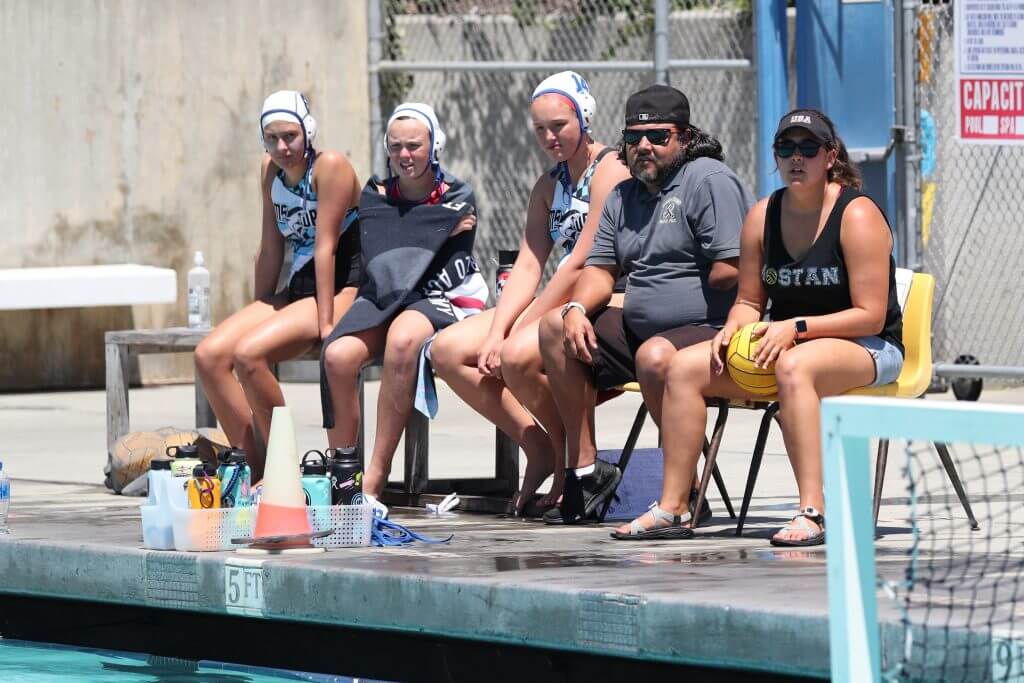
A. J. Abril (second from right). Photo Courtesy: Catharyn Hayne
– Your disability hasn’t done anything to quell your interest and involvement in polo.
I attribute that to hard work. It is a deficit but you have to overcome that, and the only way you’re going to do that is through effort.
And you do compensate. For example, I probably had the strongest legs on the team—because I understood that legs are important in this game.
I’m not gonna be the fastest so I had to out-smart my opponents. They’re thinking two steps ahead, so with a deficit you have to think three steps ahead. As long as you can do that you’re going to be able to compete with anyone.
– I’m not sure if you noticed that Sydney Barta from the Brooklyn team also is playing with a handicap—and doing quite well despite it!
I had the privilege of talking to her before the game. I know it’s hard, but once you get past that initial hurdle and say: I can do this… that takes a lot of heart in and of itself.
My situation is a little different; I was born like this. I didn’t have to adapt to anything; I grew up learning how to do things differently.
Anyone who has an accident has to completely change how they do everything. And water polo’s a hard sport. The whole time you’ve got people pulling on you, there is not bottom and you’re going back and forth.
That’s just where the heart kicks in. There’s only so much the body can do; after that it becomes the mind and the spirit—and even the soul.
That defines a player. You can be the best athlete out here, but if you don’t have the heart, where are you going to go?
Editor’s Note: Swimming World is on the ground all week with stories and quotes from the 2018 USA Water Polo National Junior Olympics. Look for our coverage of the largest youth water polo tournament in the world. If you want to tune into all the action at Stanford’s Avery Aquatics Center, check out FloSwimming’s link to the tournament; for pictures from various JO sites, visit this link for KLC photos.



